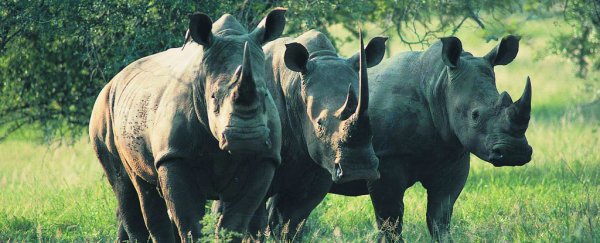Earth is currently in the midst of a mass extinction. Experts suggest that by the middle of the century, as many as two-thirds of the planet's species could be extinct.
The most likely cause of this sobering phenomenon is climate change, which is throwing off the balance of natural ecosystems and forcing animals to migrate or adapt to changing weather conditions.
Despite these facts, Republican leaders in the US have signalled that they intend to roll back the influence of the Endangered Species Act, claiming it is not being used as Congress intended when it passed the law in 1973.
An Australian professor has suggested a different approach to the problem: privatising wildlife.
George Wilson, an adjunct professor at the Australian National University, recently published a paper in the journal Conservation Letters proposing that his country take a page from southern Africa by giving private landowners authority over the wildlife on their property – in a limited trial.
Since the late 1960s, the nations of Zimbabwe, Namibia, Botswana, and South Africa have – at various times and to varying degrees – granted people who own land that's home to wildlife full legal control over the animals on that property.
That means that instead of the government taking the lead in regulating hunting, eco-tourism, or conservation programs, that power is handed over to land owners.
The underlying philosophy behind these policies is the concept of tragedy of the commons.
The logic goes like this: when wildlife is considered a public good, and the government takes on the duty of protecting it, humans don't have any incentive to help in that effort – and might even resent the regulations enacted in order to protect animals (as GOP lawmakers seem to).
But if land owners are given control over the animals on their property, and are even offered ways to profit from tourism or hunting, then they will have a reason to invest in growing and maintaining the animal populations.
Since such policies were instituted in Africa, a few studies have shown that wildlife privatisation likely contributed to a boom in tourism.
An article published in 2000 estimated that as many as 20 percent of all the ranches in Zimbabwe, Namibia, and South Africa at the time were managed at least in part for wildlife tourism.
The paper also suggests that in Zimbabwe, an estimated 63 percent of giraffe and 56 percent of cheetah were found on commercial ranch properties.
In South Africa today, Wilson notes in his paper, high-value wildlife species are traded to help land owners populate and restock their properties and establish new populations.
There are also wildlife auctions in which national parks and others sell animals, which helps parks get funding.
These policies, Wilson suggests, have meant that southern Africa has more wildlife than 100 years ago, unlike other parts of the continent where populations of animals are declining.
There are plenty of arguments against this practice, however. Animals owned by individuals aren't free, or in their natural habitat, of course.
And critics also suggest that privatisation could allow people to create hunting grounds full of captive animals, and point out that it could create an economic incentive for wealthy people to hoard animals of a certain species and demand high prices from those who want to visit them.
The reality, however, is that rising temperatures mean there simply might not be any way to reverse the extinction that's already underway.
This article was originally published by Business Insider.
More from Business Insider:
